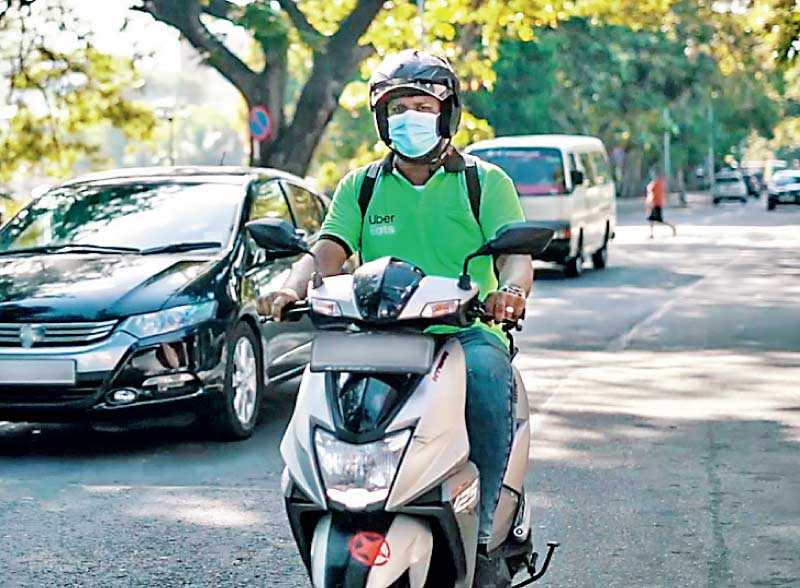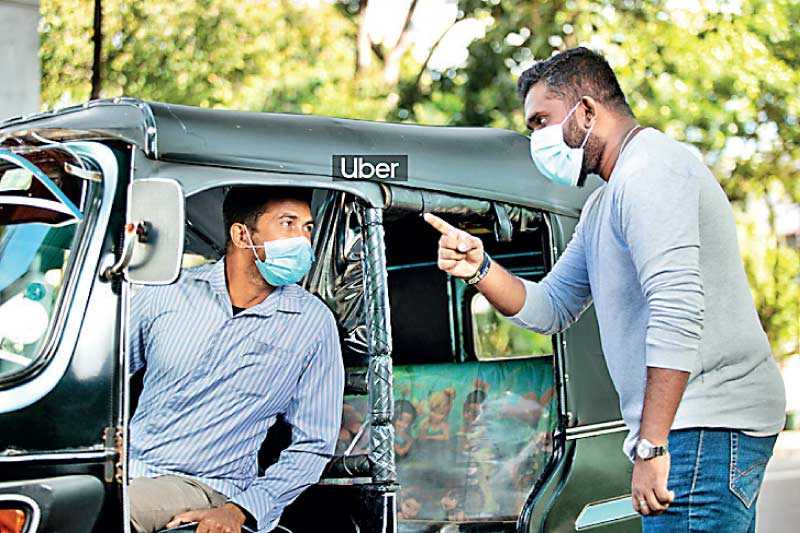Saturday Feb 21, 2026
Saturday Feb 21, 2026
Thursday, 11 February 2021 01:53 - - {{hitsCtrl.values.hits}}

Uber yesterday released its annual analysis, ‘A Look Back at 2020: Year in Review,’ a glimpse into how Sri Lankans ate during the lockdown and then slowly began safely moving again as cities started opening up.
The report, backed by insights and data, highlights Uber’s support for communities by shifting focus to ‘Move What Matters’ – which found meaningful ways to use the Uber app and network. Uber moved frontline warriors to work, Uber Eats moved food to those who needed it and the platform empowered drivers and delivery partners to earn.
By the numbers
10 million: Provided 10 million rides and deliveries of food globally to healthcare workers, seniors, and others in need, free of charge across the world. In Sri Lanka, Uber offered free UberMedic rides worth Rs. 8.5 million to transport frontline healthcare workers to and from their homes and health care facilities. Additionally, the company distributed dry rations worth Rs. 8.5 million to vulnerable communities island wide in partnership with the Government.
$ 50 million: Allocated $ 50 million to purchase health and safety supplies for drivers across the world. In Sri Lanka, Uber distributed PPE including masks, sanitisers and disinfectants to driver and delivery partners, amounting to a total of Rs. 17.4 million.
400 grocery partners: Following the temporary closure of all restaurants and shopping centres during the lockdown, Uber Eats partnered with supermarkets and small independent businesses to meet the growing grocery needs of Sri Lankans. Uber launched grocery delivery in Sri Lanka, and now works with more than 400 grocery partners in the country.
Rs. 24 million in tips: Despite all of the adversity, Sri Lankans demonstrated gratitude, and using the new ‘tipping’ feature in the UberEats app, contributed Rs. 24 million in tips to delivery partners, the entirety of which went to them.
Three new services: As cities opened up and people resumed travel, Uber wanted to safely cater to the evolving needs of our communities. The ridesharing company launched three new services, including Uber Connect, a package delivery service that enables customers to transport packages from the safety of their homes; and car and tuk rentals, which allow riders to book affordable multi-hour, multi-stop options to travel in the ‘new normal.’
3,000 safety screens: Uber pioneered the safety screen, our ceiling-to-floor transparent plastic screen between the passenger and the driver and facilitated installation in over 3,000 cars and tuks, setting a new standard for safety in the ‘new normal.’
Zero: In the new normal, Uber wants to partner with cities to ‘Build back better’ and has pledged to become a fully zero-emission platform by 2040.
A few food trends
Day and date: The most popular day of the week for food delivery this year was Thursday, and the most popular time of day to place an order was noon.
Quarantine cravings: During quarantine, eaters wanted their food prepared exactly to their liking, with requests for “extra sauce,” increasing the most. They, however, did get a little less picky when it came to portions, as the demand for “both leg pieces” decreased significantly.
A new way to explore: While physically traveling the world was more difficult this year, our eaters found ways to travel across cuisines. Indian, American, and Chinese were the top three choices for Sri Lankans.
The favourite: There was a huge variety of meal selections ordered by Sri Lankans through the year, but ‘Yellow Rice with Chicken’ trumped the others to emerge as the most ordered dish in the country through 2020.
Mind your manners: Sri Lankans maintained their etiquette through the challenging year, too, with ‘please’ figuring in nearly half of the order requests.
As Sri Lanka begins moving again, Uber remains committed to offering riders convenient, safer and affordable mobility solutions, along with providing eaters timely, delicious meals, at the touch of a button.
